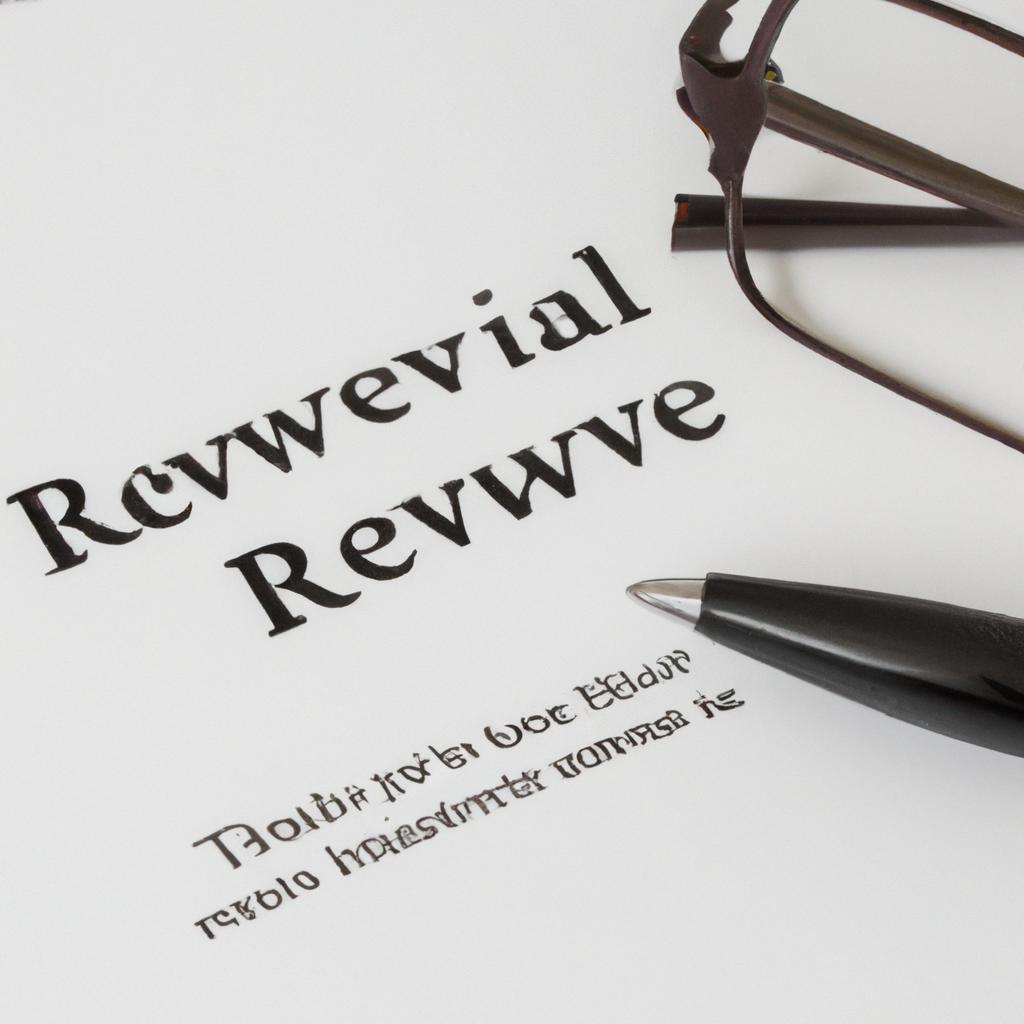As individuals, our lives are constantly evolving and our financial situations ever-changing. One fundamental document that should reflect these changes is our last will and testament. However, many may find themselves wondering, “How do I change my will?” In this article, we will explore the necessary steps and considerations for modifying this crucial legal document. At Morgan Legal Group in New York City, our team of experienced lawyers specialize in estate planning, probate, elder law, wills, and trusts, and are here to guide you through the process of updating your will to ensure your wishes are accurately reflected.
Reviewing the Need for Amending Your Will
When considering amending your will, it is crucial to review the changes in your life circumstances that may warrant an update. Life events such as marriage, divorce, birth of a child, or acquisition of new assets are all reasons to reevaluate your will to ensure it reflects your current wishes and distribution of assets. Failure to update your will may result in unintended beneficiaries or distribution of assets, which can lead to disputes and legal challenges.
Consulting with an experienced estate planning attorney is essential to navigate the complexities of will amendments. A skilled lawyer can help you understand the legal requirements for making changes to your will, ensure that your amendments are legally valid and properly executed, and provide guidance on estate planning strategies to minimize taxes and protect your assets. It is never too late to review and update your will to reflect your current wishes and protect your loved ones.

Key Considerations Before Making Changes to Your Will
Before making any changes to your will, it is important to carefully consider the following key points:
<ul>
<li><strong>Review your current will:</strong> Take the time to review your existing will to understand what changes need to be made and why.</li>
<li><strong>Consult with an attorney:</strong> It is highly recommended to seek the advice of an experienced estate planning attorney to ensure that the changes you want to make are legally valid and will not be contested in the future.</li>
<li><strong>Consider your beneficiaries:</strong> Think about how the changes to your will may impact your loved ones and beneficiaries. Make sure to communicate openly with them about your decisions.</li>
<li><strong>Update your will regularly:</strong> Life circumstances can change, so it is important to review and update your will as needed to reflect any significant changes in your life.</li>
</ul>
<p>By carefully considering these key points before making changes to your will, you can ensure that your wishes are accurately reflected in your estate planning documents. At Morgan Legal Group, our team of experienced attorneys in New York City can help guide you through the process of updating your will to protect your assets and provide for your loved ones.</p>
Effective Strategies for Modifying Your Will
When considering modifying your will, it is essential to follow the proper legal procedures to ensure that your wishes are accurately reflected. One effective strategy is to clearly outline the changes you wish to make in a separate document known as a codicil. This document must be signed and witnessed in the same manner as your original will. By utilizing a codicil, you can easily make minor adjustments to your will without the need to create an entirely new document.
Another effective strategy for modifying your will is to create a new will altogether. This allows you to make more significant changes and ensures that all of your wishes are clearly communicated. When creating a new will, it is vital to clearly revoke any previous wills to avoid confusion or legal challenges. Additionally, it is crucial to work with an experienced estate planning attorney to draft a new will that complies with all legal requirements.

Consulting with Experienced Estate Planning Attorneys in New York City
If you are considering changing your will, it is important to consult with experienced estate planning attorneys in New York City. Making amendments to your will can have significant legal implications, so it is crucial to seek guidance from professionals who specialize in estate planning.
When working with our team at Morgan Legal Group, we will assist you in navigating the complexities of estate planning and ensure that your wishes are accurately reflected in your will. Our attorneys have a wealth of experience in helping clients make changes to their estate plans, and we will work closely with you to ensure that your updated will is legally sound and properly executed.
Q&A
Q: Can I change my will on my own?
A: Yes, you can change your will on your own by creating a new one or making amendments to your existing will.
Q: When should I consider changing my will?
A: It’s a good idea to review and potentially update your will whenever you experience major life changes such as marriage, divorce, birth of a child, or acquisition of new assets.
Q: How do I go about changing my will?
A: You can change your will by either creating a new will altogether or by making a codicil, which is a legal amendment to your existing will.
Q: Do I need a lawyer to change my will?
A: While it’s not required to have a lawyer help you change your will, seeking legal advice can ensure that your changes are done correctly and in accordance with the law.
Q: What should I include in my updated will?
A: Make sure to include clear instructions on how you want your assets to be distributed, as well as appointing guardians for any minor children and naming an executor to handle your estate.
Q: How often should I update my will?
A: It’s recommended to review and potentially update your will every few years or whenever you experience significant life changes to ensure that your wishes are accurately reflected.
The Way Forward
In conclusion, changing your will doesn’t have to be a daunting or complicated task. By following the necessary steps and seeking guidance from a legal professional, you can ensure that your wishes are accurately reflected in your updated will. Remember, life is constantly changing, and it’s important to regularly review and update your will to ensure that your loved ones are taken care of in the way you intend. So don’t delay, take the necessary steps to change your will and provide peace of mind for yourself and your beneficiaries.
 Changing a will can be a daunting and emotional decision. It requires careful consideration and planning to ensure that your wishes are properly reflected and executed in the event of your passing. Many people may wonder, “How do I change my will?” In this comprehensive guide, we will discuss the steps involved in changing a will and provide valuable insights to make the process as smooth as possible.
Changing a will can be a daunting and emotional decision. It requires careful consideration and planning to ensure that your wishes are properly reflected and executed in the event of your passing. Many people may wonder, “How do I change my will?” In this comprehensive guide, we will discuss the steps involved in changing a will and provide valuable insights to make the process as smooth as possible.
Understanding the Basics of a Will
Before delving into the process of changing a will, it is essential to understand the basics of a will. A will is a legal document that outlines how a person’s assets and personal possessions should be distributed after their death. It also appoints an executor to manage the distribution of assets and fulfill any other wishes stated in the will.
The Importance of Reviewing and Updating Your Will
A will is a dynamic document that should be regularly reviewed and updated to reflect changing circumstances. Major life events such as marriage, divorce, the birth of a child, or a change in financial situation can impact the distribution of assets in a will. It is recommended to review and update your will every 3-5 years or whenever a significant life event occurs.
Steps to Change a Will
Step 1: Determine If Your Will Needs to be Changed
The first step in changing a will is to determine whether your current will needs to be changed or if a new one needs to be drafted. You may want to make changes to your will if your personal or financial circumstances have changed, or if you wish to revise any clauses or beneficiaries.
Step 2: Understand State Laws and Requirements
Each state has its own laws and requirements regarding wills. It is essential to understand these laws and requirements to ensure that your changes are legally valid. Some states may require a will to be witnessed by two or three witnesses, while others may require a will to be notarized. It is recommended to consult an attorney to ensure that your will complies with state laws and is legally binding.
Step 3: Decide on the Changes
Once you have determined the need to change your will and have understood the state laws and requirements, the next step is to decide on the changes to be made. This can include adding or removing beneficiaries, changing the distribution of assets, or naming a new executor. It is crucial to be clear and specific in your changes to avoid any confusion or disputes after your passing.
Step 4: Execute the Changes
After deciding on the changes, you will need to execute them. This can be done by drafting a new will or codicil. A codicil is a legal document that amends specific clauses in a will without the need for a complete rewrite. It is recommended to seek the assistance of an attorney to ensure that the changes are legally binding and correctly executed.
Step 5: Witnesses and Notarization
As mentioned earlier, some states require a will to be witnessed or notarized. It is essential to follow these procedures to ensure that your will is legally valid. Witnesses must be present during the signing of the will, and their signatures act as proof that the document was signed willingly and in a sound state of mind. Notarization involves the certification of a will by a notary public, who certifies that the document was signed in their presence and is authentic.
Practical Tips for Changing a Will
1. Keep copies – Keep copies of your current will and the changes made to it. This will ensure that your wishes are accurately reflected, and there is no confusion or dispute after your passing.
2. Communicate with beneficiaries – It is recommended to inform your beneficiaries of any changes made to your will. This will give them the opportunity to ask questions and understand your reasoning behind the changes.
3. Update other legal documents – After making changes to your will, it is crucial to update other legal documents such as life insurance policies, retirement plans, and trusts to align with your revised will.
Benefits of Changing a Will
1. Reflect your current wishes – Changing a will gives you the opportunity to ensure that your current wishes are accurately reflected and executed in the event of your passing.
2. Avoid confusion and disputes – Updating a will can help avoid confusion and disputes among family members and beneficiaries.
3. Protect your assets – Changing a will can help protect your assets and ensure that they are distributed according to your wishes.
Case Study: The Importance of Keeping Your Will Updated
In the case of musician Prince’s death in 2016, it was discovered that he did not have a valid will in place. This resulted in a lengthy legal battle among his family members over the distribution of his $300 million estate. Had Prince updated his will, he could have avoided the confusion and disputes that arose after his passing.
In conclusion, changing a will is a necessary and important process that should be done with careful consideration and planning. It is recommended to seek the assistance of a legal professional to ensure that your changes are legally binding and accurately reflect your wishes. By understanding the steps involved in changing a will and following the practical tips provided, you can ensure that your assets are distributed according to your wishes and avoid any confusion or disputes among your loved ones.












